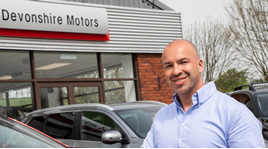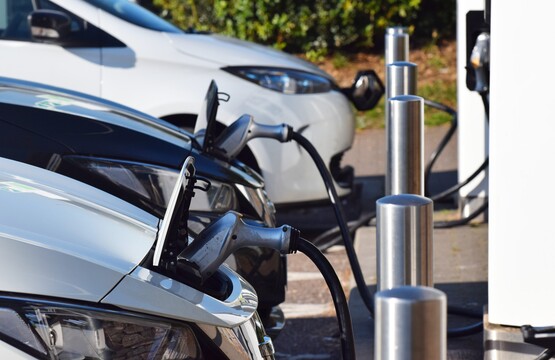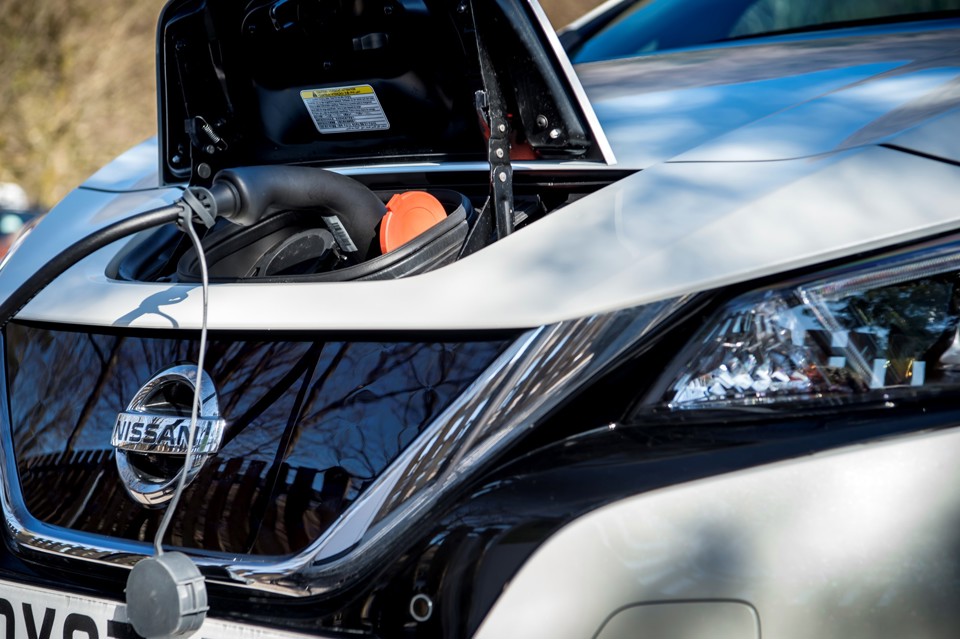The intentions of the Government in relation to the environment and the UK's switch to elelctric vehicles (EV) have certainly become a lot clearer.
The UK is accelerating towards a 2030 future where every new car sold will be zero emissions-capable and retailers need to prepare for increasing customer enquiries.
Car-buying comparison site Carwow has already recorded higher levels of interest in alternative fuel vehicles (AFVs), with them accounting for a quarter of sales through its website in December 2020, as well as one-in-five car configurations in January this year.
John Veichmanis, Carwow chief operating officer, tells AM: “There have been some sizable shifts in activity with consumer appetite for AFVs ramping up, something which has been accelerated by the pandemic.”
“The level of research intensifies when you’re buying an electric vehicle (EV) or hybrid, particularly for the first time. However, there is no comparison to the level of expert AFV product knowledge customers can get from their retailer.
“So any aid dealers can offer during that research and inspiration stage is vital.”
 Nathan Tomlinson, Devonshire Motors dealer principal, agrees there is now a much clearer message from the Government on the AFV future.
Nathan Tomlinson, Devonshire Motors dealer principal, agrees there is now a much clearer message from the Government on the AFV future.
He told AM: “We’ve been working with EVs since 2009, and were one of the pilot dealerships for the National Franchised Dealer Association’s EV Approved scheme.
“The EV customer journey is usually much more protracted as they need time to test, evaluate and understand how new technology works with their daily routines.
“Ultimately, it’s about as much time and product exposure as they need – in as many different circumstances as they need it.”
Chorley Group represents Nissan, Hyundai, Kia and MG, all brands that have a broad range of AFVs.
Miles Roberts, Chorley Group innovation development manager and winner of AM’s 2020 Bright Spark Award, for his role as electric vehicle and hybrid specialist, says having an even more consultative approach when qualifying customers is key.
Roberts says that for the vast majority, EVs will probably be well suited to customers’ daily mileage, particularly after the pandemic.
He says: “Customers have probably gone from doing 20 miles a day on average, to more like 20 miles a week during lockdown.
“It’s really put things into perspective in terms of how good the range on the latest EVs are to the point that it’s not as much of a concern anymore.”
Tomlinson says dealers should be prepared to handle a lot of questions, provide a lot of support and encourage different scenario testing to help allay any fears, uncertainty and doubt.
Roberts says: “I’d really encourage all of the sales team to live with an EV as their daily drive for at least a week or two.
“It’s no good just having the sales manager try it, you have to live with the technology to get a real feel for it. So when customers then ask for advice about charging, or range, you can give them some real advice.
“Some EV buyers can be real enthusiasts about the technology so it’s also pretty difficult to bluff your way through if you’re not sure how to answer a question.”
This includes being totally honest about the benefits and the kinds of range customers can expect in real-world driving.
Roberts says: “There’s no point quoting the official mpg figures. Let them know what kind of mpg you have been getting out of a hybrid. AFVs are great, but you need to set the right expectations.”
READY TO SUPPORT
Chorley Group has found social media to be a key way for interacting with AFV customers, as, generally, they are more tech focused and like to ask for advice and chat on Twitter, Facebook or dedicated forums.
Roberts also takes part in a weekly MG EVs owner’s club podcast hosted on YouTube, where he chats with EV owners about tips and advice.
Post-purchase with an AFV is just as important as the lead up to a sale.
Tomlinson says the ownership experience for AFVs can be extremely nuanced so it’s important to provide full-time aftercare.
He says: “Things like how to handle winter conditions and what happens when your PHEV doesn’t use fuel for an extended period of time.
“We’ve found that booking a follow-up appointment a week or two post-handover works particularly well, plus we have an automated customer relationship management (CRM) process to ensure we have plenty of feedback loops available for customers to use.”
The expectation from many customers is that servicing costs will be cheaper due to fewer moving parts.
Tomlinson says: “Overhead absorption isn’t an issue due to the balance of sales right now, but, with pure EV, you are looking at a very significant reduction in labour and oil sales – the two commodities with the highest volume and gross profit – and, of course, the loss of parts revenue too.”
He acknowledges it’s a tricky proposition for the industry and dealers will have to start to recognise some of the opportunities that are already being lost.
Tomlinson says: “I have yet to see an ultra-efficient aftersales operation that doesn’t waste some significant amount of time or sales opportunity.
“Equally we have to work harder with OEMs to ensure that, between us, we don’t make the same mistakes as we made with the internal combustion engine (ICE), creating the independent market through actions of our own.
“EV/PHEV is a once-in-a-lifetime opportunity to start again, to work collaboratively to retain customers with value proposition and bespoke service levels.”
READY TO CHARGE
Retailers are no longer expected by manufacturers to offer free for all use of their vehicle chargers for customers, but managing that charging infrastructure is getting increasingly important.
Chorley Group is in the middle of a charging infrastructure review at the moment and Roberts says it’s essential to plan for future volumes and the impact that can have on a showroom site.
He adds: “We started with one rapid charger, but it means you can only charge one vehicle at a time. Having a mix of rapid chargers and slow chargers means you always have a solution ready if you need to charge a vehicle quickly. Then, for the majority of time, you can use the slow chargers to top up what you need.”
Installing a rapid charge point can cost up to £30,000, while it’s possible to install seven to eight 7kw slow chargers for the same price.
Chorley’s sales teams have to make sure customer vehicles are charged and ready for handover, as well as making sure its demonstrator fleet is also charged and ready for test drives.
 Chorley is putting double the number of chargers it needs in place to account for market growth over the next five years.
Chorley is putting double the number of chargers it needs in place to account for market growth over the next five years.
Roberts says: “You need to make the most of the electricity capacity you have on site.
“You can use load-managed charging so you can split the power between your rapid chargers and slow chargers as and when you need.
“That can avoid you having to invest in costly grid upgrades. But if you’re digging up your car park for more chargers, make sure you have the right cabling, fuse box and fuse board capacity so you can add more in the future.
“Work with your provider for solutions.”

















Login to comment
Comments
No comments have been made yet.